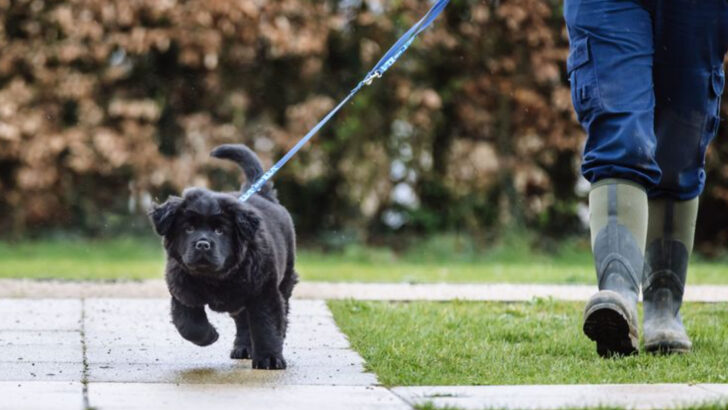Puppies are tiny tornadoes wrapped in fur. One minute, they’re zooming around the house at full speed—the next, they’re chewing your favorite shoes like it’s their life’s mission.
It’s adorable… until it’s exhausting.
If your puppy seems to have endless energy and no off switch, don’t panic! They aren’t broken, and you don’t need to surrender to chaos. You just need the right approach to channel that enthusiasm into calm, happy behavior.
Ready to trade those frantic zoomies for peaceful snuggles? Here are 15 proven strategies to help your hyperactive pup settle down—without breaking their playful spirit!
Daily Exercise Routines
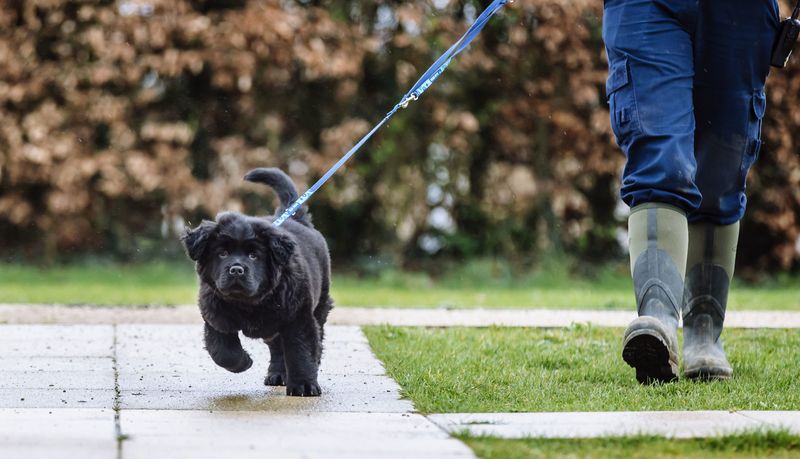
Consistent daily exercise is crucial for a hyperactive puppy. Engaging your puppy in regular walks, runs, or games of fetch helps burn off excess energy. Make sure these activities are varied to keep them exciting.
A morning routine of play can set a calm tone for the day, while an evening walk can help your puppy wind down before bedtime. Mix in some interactive toys to stimulate their minds and bodies.
This regular physical engagement not only tires them out but also strengthens the bond between you and your furry friend.
Obedience Training
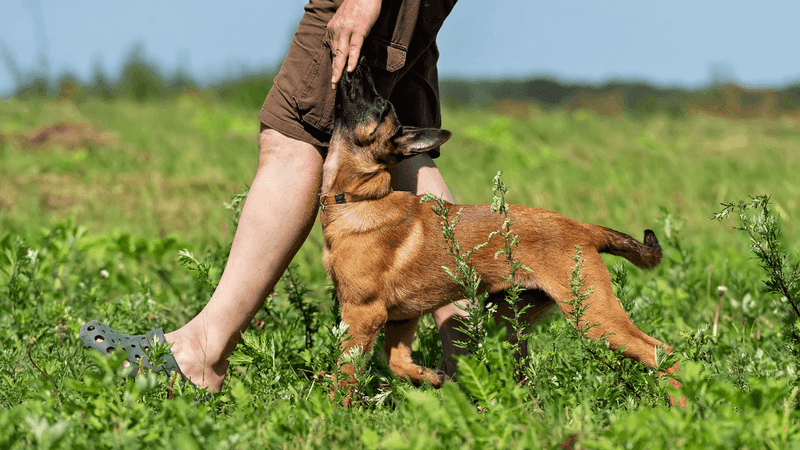
Implementing structured obedience training is a great way to channel your puppy’s energy. Commands like “sit,” “stay,” and “come” focus their attention and encourage discipline.
Start with short sessions to maintain their interest, gradually increasing duration as they adapt. Positive reinforcement through treats and praise makes learning enjoyable.
The benefits extend beyond behavior management, as training enhances communication between you and your puppy. Watching them learn and respond fosters a sense of achievement and strengthens your relationship.
Interactive Toys
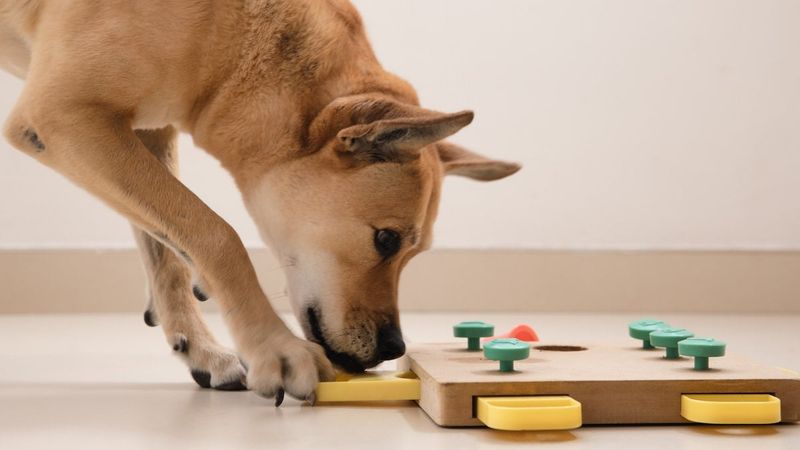
Interactive toys are a wonderful solution to keep your puppy entertained. These toys challenge their minds and prevent boredom, which often leads to hyperactivity.
Look for toys that encourage problem-solving, like puzzle feeders or treat-dispensing balls. Rotate toys regularly to maintain their novelty and excitement.
By focusing your puppy’s energy on figuring out these toys, you provide mental stimulation that complements their physical activity. This balance is essential in reducing unwanted behaviors and promoting a calmer demeanor.
Socialization Opportunities
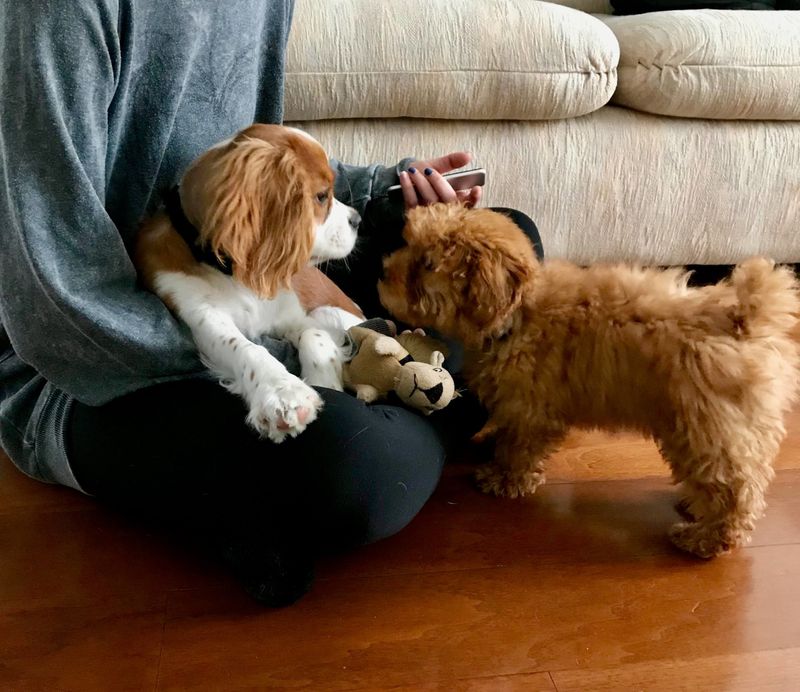
Socializing your puppy with other dogs and people is essential for a well-adjusted pet. Regular playdates or visits to the dog park expose them to new experiences.
This interaction teaches them social cues and helps manage their excitement levels. Ensure these encounters are positive, reinforcing good behavior with treats and praise.
Proper socialization reduces anxiety and hyperactivity, making outings more enjoyable for both of you. It nurtures a friendly and confident puppy, ready to face the world with wagging tail and open heart.
Consistent Routines
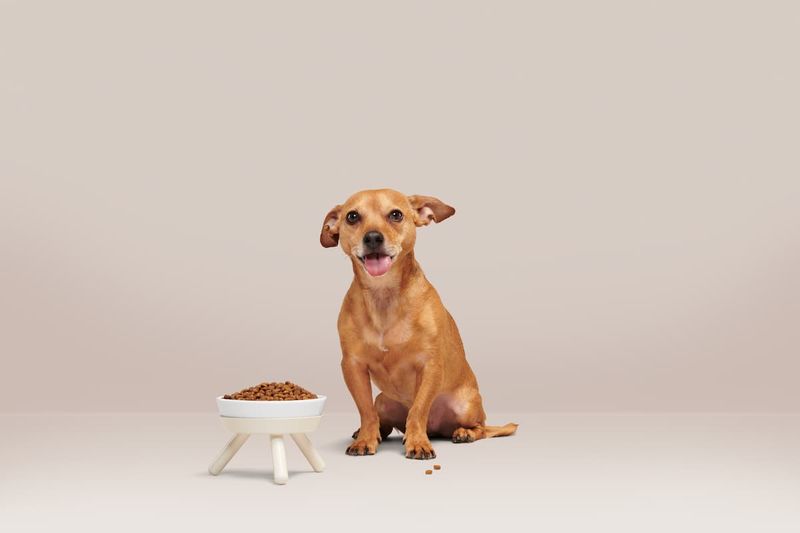
Puppies thrive on consistency. Establishing regular feeding, play, and rest times helps them know what to expect. This predictability can soothe anxiety and curb hyperactive behavior.
A balanced schedule ensures they receive enough attention and care throughout the day. Align mealtimes with play and rest to foster a natural rhythm in their activities.
Consistency builds trust and security, as your puppy feels more at ease in a structured environment. Over time, this approach leads to a more relaxed and contented companion.
Calm Environment

Creating a calm environment is vital for soothing a hyper puppy. Minimize loud noises and sudden disruptions, as these can increase anxiety.
Provide a quiet space with soft lighting and comfortable bedding where your puppy can retreat and relax. Diffusing calming scents like lavender might also help.
Establishing such a retreat allows your puppy to decompress, reducing hyperactivity. This sanctuary becomes their go-to spot for rest and recuperation, fostering a sense of peace and comfort in your home.
Proper Nutrition
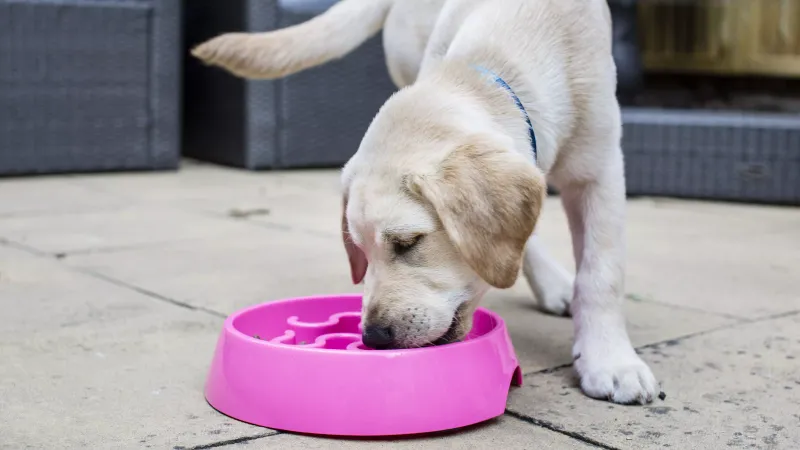
Proper nutrition is foundational to managing a hyper puppy. A balanced diet fuels their activity and supports overall health. Choose quality food tailored to your puppy’s age, size, and breed needs.
Consult your vet for personalized dietary advice, ensuring the food provides necessary vitamins and minerals. Avoid high-calorie treats that might increase energy levels.
Maintaining proper nutrition helps stabilize energy fluctuations, providing a calmer demeanor. You’ll notice that a well-fed puppy is not only healthier but also less prone to bouts of excessive excitement.
Mental Stimulation
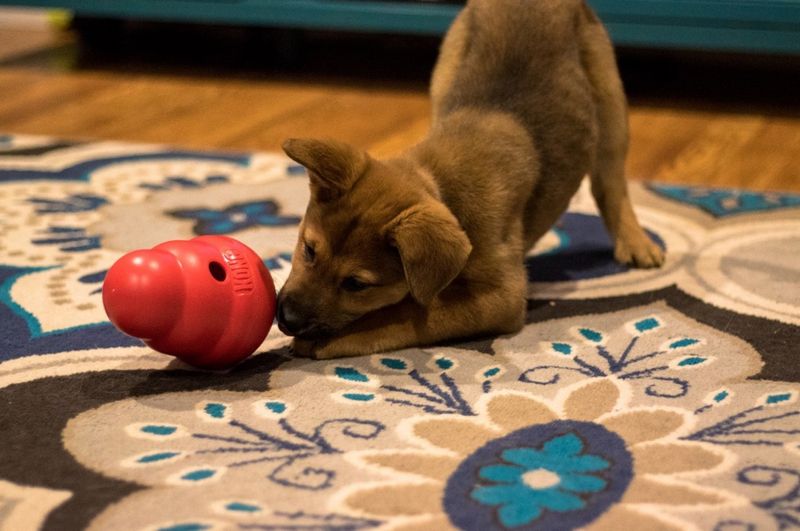
Mental stimulation keeps a puppy’s mind active and engaged. Introduce games that require problem-solving and focus, such as hide-and-seek or scent tracking.
These activities encourage them to think, reducing boredom-induced hyperactivity. Interactive toys and training exercises also contribute to their mental well-being.
A mentally stimulated puppy is often a happier one, as they learn to channel their energy into productive tasks. You’ll find that this engagement is key to nurturing a balanced and well-rounded companion.
Regular Vet Check-ups
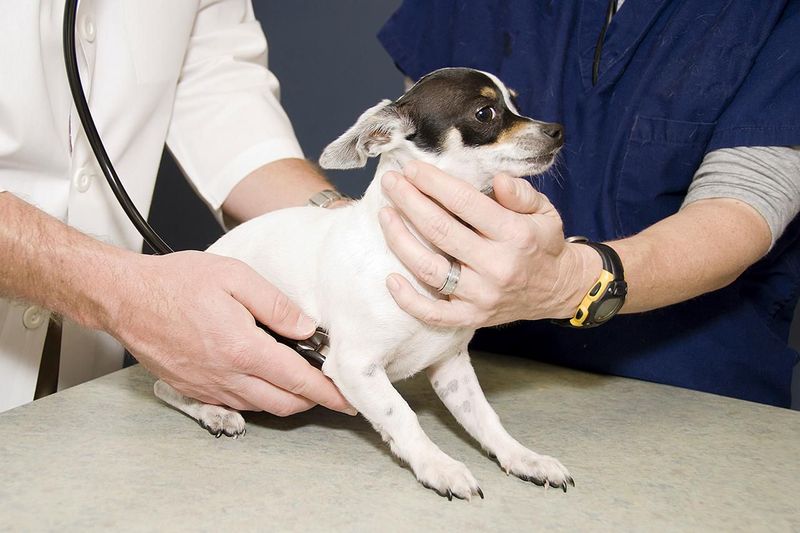
Regular vet check-ups ensure your puppy’s health is on track. Physical examinations can detect issues that might cause hyperactivity, such as thyroid imbalances.
Keeping vaccinations up to date and monitoring growth are essential aspects of these visits. Your vet can also offer advice tailored to your puppy’s specific needs.
Regular check-ups provide peace of mind, knowing your puppy’s health is monitored by professionals. A healthy puppy is often a more balanced one, with fewer behavioral concerns.
Quality Sleep
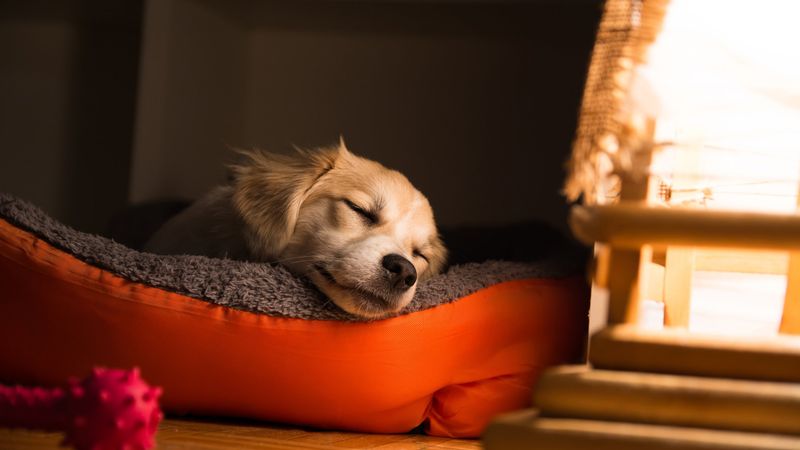
Quality sleep is essential for a puppy’s growth and behavior. Ensure their sleeping area is comfortable and free from disturbances.
Puppies need ample rest to recharge, so establish a bedtime routine to signal it’s time to wind down. Consistent sleep patterns contribute to their overall well-being.
A well-rested puppy is typically less hyperactive, as they have the energy to engage in daily activities without being overtired. This restfulness translates into more balanced behavior and a happier disposition.
Appropriate Playtime
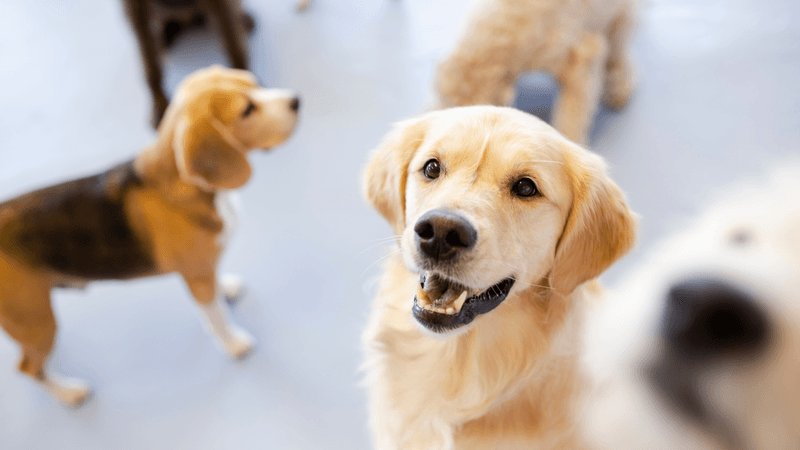
Appropriate playtime helps manage a puppy’s energy levels. Engage in activities that are fun yet controlled, like tug-of-war or gentle wrestling.
These games strengthen your bond while teaching boundaries and impulse control. Alternate between high-energy play and calming activities to maintain balance.
Being mindful of your puppy’s energy peaks and troughs allows you to plan play around their natural rhythms. This attention to their needs ensures a happy, well-adjusted pet, thriving in their environment.
Positive Reinforcement
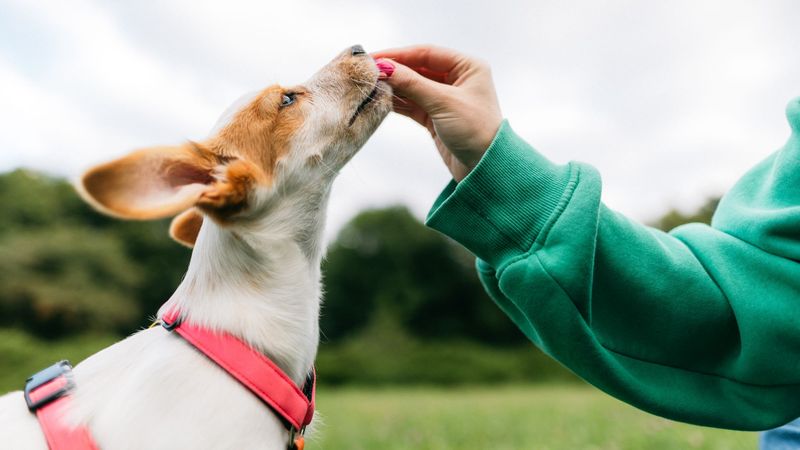
Positive reinforcement is effective in managing a hyper puppy. Rewarding desired behaviors with treats, praise, or play encourages repetition of those actions.
Consistency in reinforcement helps your puppy understand expectations and fosters a positive learning environment. Use this method during training and daily interactions.
Positive reinforcement strengthens trust and communication, contributing to a well-behaved and content companion. It transforms training into an enjoyable experience, with results that benefit both you and your puppy.
Avoid Overstimulation
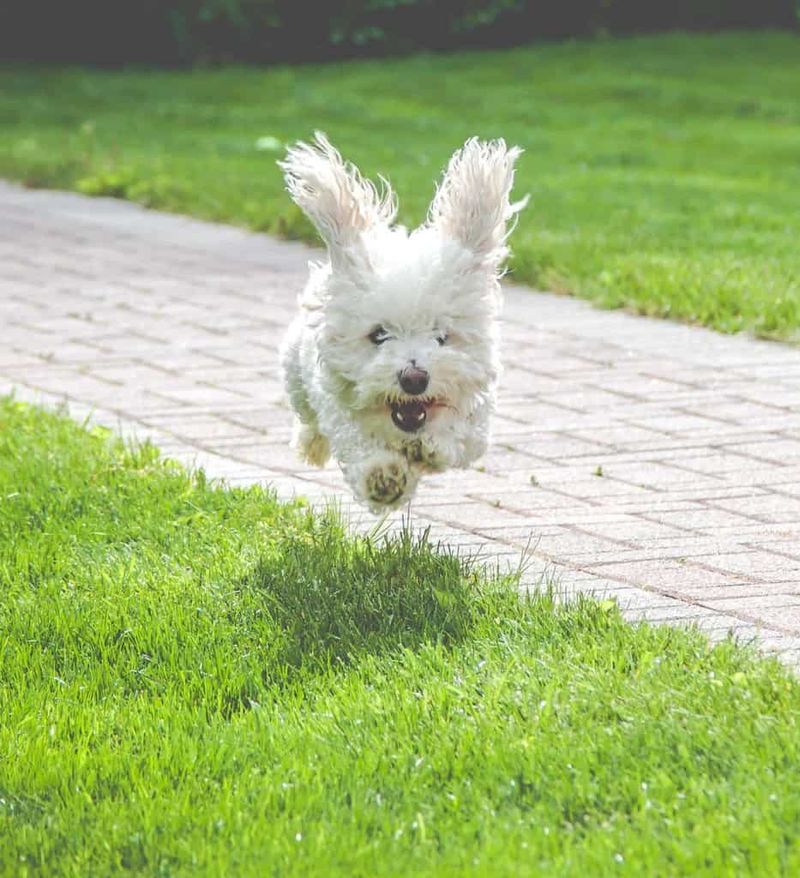
Avoiding overstimulation is crucial for a hyper puppy. Too many new experiences at once can lead to anxiety and excitement.
Introduce new environments and people gradually, allowing them time to adjust. Monitor their reactions and provide breaks as needed.
This cautious approach helps them remain calm and composed in various settings. By controlling the pace of exposure, you nurture a puppy that can enjoy new experiences without becoming overwhelmed.
Use of Calming Aids
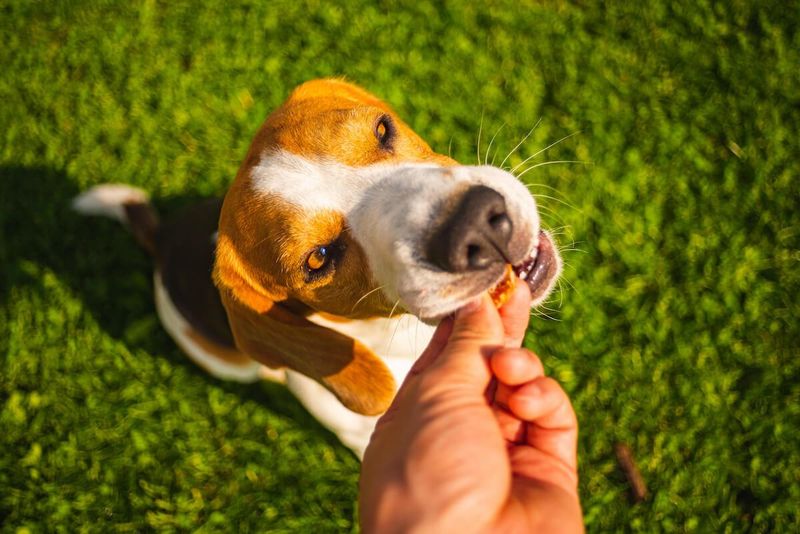
Calming aids can provide additional support for managing hyperactivity. Products like calming vests or diffusers with soothing scents help reduce anxiety.
These aids work by providing comfort through gentle pressure or familiar aromas. Consult with your vet for recommendations that suit your puppy’s specific needs.
Calming aids are especially useful during potentially stressful situations, like travel or thunderstorms. They offer a sense of security, promoting a peaceful disposition and improving overall quality of life.
Quality Time Together
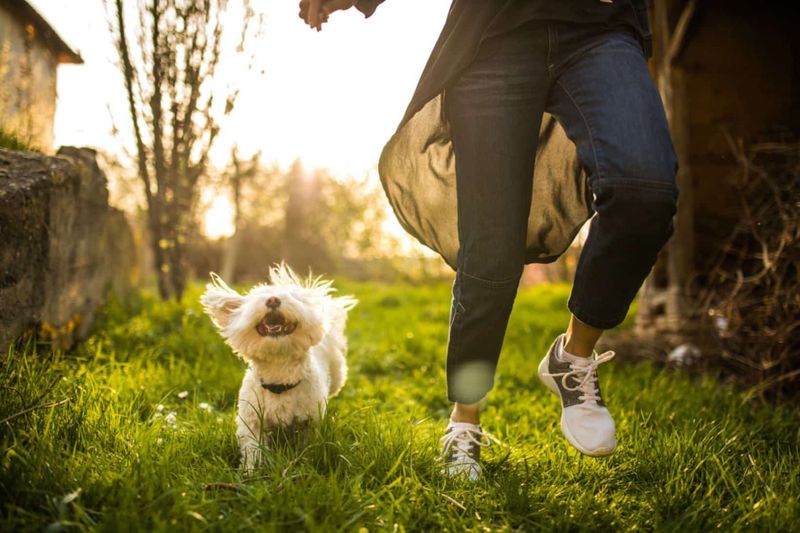
Spending quality time with your puppy strengthens your bond and reduces hyperactivity. Engage in quiet activities like brushing or simply sitting together.
This one-on-one time fosters a sense of security and trust, allowing your puppy to relax in your presence. It’s an opportunity to observe their behavior and needs.
Building a strong connection through these moments contributes to a calmer, more focused puppy. This nurturing approach enhances your relationship, providing comfort and joy for both you and your furry friend.

